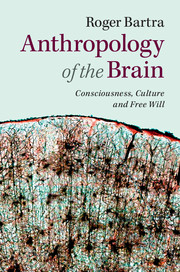Book contents
17 - The moral brain
Published online by Cambridge University Press: 05 June 2014
Summary
People are continuously faced with the need to make moral decisions and to act upon them accordingly. Some psychologists sustain the idea that there is an inborn cerebral module in humans that is responsible for the unconscious and automatic process that produces judgments about right and wrong. This idea is a transfer of the postulates of Noam Chomsky on the existence of a generative grammar housed in the neuronal circuitry, to the field of ethics. Likewise, there would be a moral grammar, a kind of instinct dwelling in the brain that, from unconscious and inaccessible principles, would generate judgments on what is permissible, prohibited, unjust, and correct. Of course a moral instinct (or faculty) would generate different rules and customs in each cultural context, in the same way that the brain module of language is supposed to produce different languages in individuals in accordance with where they are born and raised. But the module would impose the same grammatical structure in all cases.
A book by Marc Hauser, a professor of psychology at Harvard University, has popularized this interpretation. He maintains that the moral instinct has been developed throughout the process of evolution and is more apparent in the intuition of humans than in their reasoning. These instincts color our perceptions and restrict moral judgments. However, Hauser does not explicitly indicate what the universal moral principles that are lodged in the moral organ of our brain are, perhaps because he believes that these principles, “tucked away in the mind’s library of unconscious knowledge, are inaccessible.” But at one point he exemplifies what would be a universal principle. Infanticide, he says, is regarded as a barbaric act in the United States. In contrast, among the Eskimos – and in other cultures – infanticide is morally permissible and justifiable in view of the great scarcity of resources. It would seem that there are opposing moral principles here.
- Type
- Chapter
- Information
- Anthropology of the BrainConsciousness, Culture, and Free Will, pp. 132 - 138Publisher: Cambridge University PressPrint publication year: 2014



